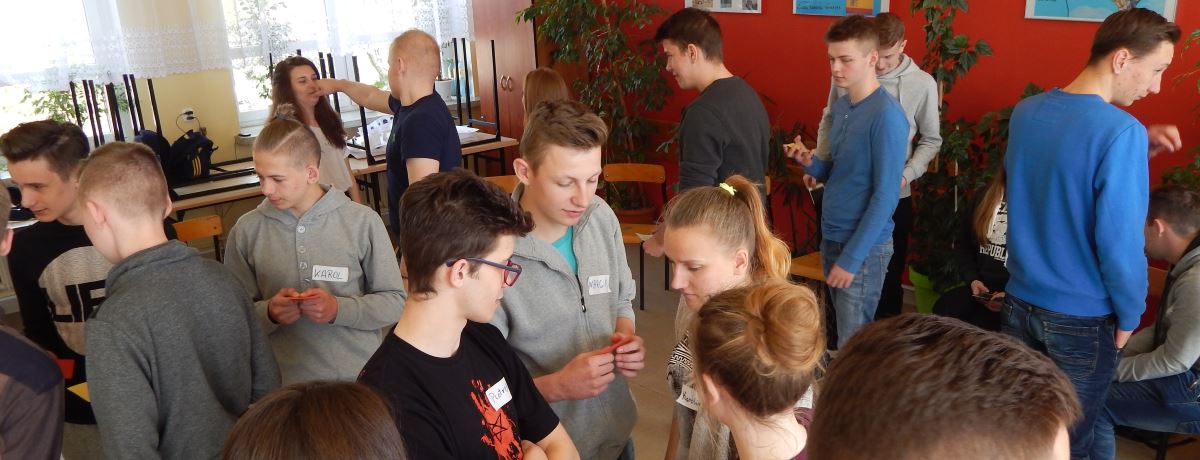Mszczonów
Zespół Szkół w Mszczonowie


Only a few sites “remembering” times when Jews comprised half of the local population can still be found in contemporary Mszczonów. Since the end of the 18th century, the town’s Jews enjoyed citizenship privileges along with all other residents. They would be equally affected by catastrophes wrecking the town – 19th-century fires consumed the old wooden prayer hall and the newly-constructed synagogue. A milestone in the life of the local Jewish community was the establishment of Hassidic Amshinov dynasty in the town, named after the Yiddish word for “Mszczonów”. Local Jews were also the ones to establish a Kehilla in nearby Żyrardów in late 19th century. In the interwar period, Tarbut Jewish Cultural&Educational Association as well as “Ha-Koah” Jewish Gymnastic Association both functioned in Mszczonów. Despite the diverse political life encompassing all existing movements of prewar Jewish life, the majority of local Jews were observant and led a traditional lifestyle.
The spring semester of 2017 School of Dialogue program was not the first opportunity for Forum’s educators to visit Mszczonów. In fact, a few graduates of 2013 School of Dialogue participated in this year’s edition of the program!
However, to most workshop participants, their town’s Jewish past had been hitherto unknown. This is never an obstacle for Forum of Dialogue educators – in the course of the first two workshops, participants learned about the most relevant information on Jewish history and culture, and received guidelines related to their final project work.
In the course of preparing their walking tour through Jewish Mszczonów, students could always rely on their principal Marianna Sosińska. It was especially important for students to seek out individual stories of Mszczonów’s Jewish residents. Thanks to their commitment and use of variety of sources, students were able to prepare an in-depth walking tour supplemented by archival photographs sourced from Mszczonów Region Memorial Chamber, among others.

The tour’s route included a bakery once owned by Indygo family who survived the Holocaust; the town’s main square; site of the former synagogue and the mikveh which is now used as a residential building. In sites that survived until the present, students would leave dark-grey ribbons, while light-grey ribbons would be left at sites that – in the memory of local residents – remain connected to the Jewish community. Sites that no longer recall the Jewish residents in any way were marked by white ribbons.
Students also visited the tenement house at ul.Warszawska – family home of Felicja Kożuch, or Orna Keret, mother of Israeli writer Etgar Keret.
The final stop of the tour was the local Jewish cemetery with ca. 200 headstones still standing. Student guides explained the symbolism behind the matzevot and presented the history of Jakub Kalisz, founder of the Hassidic dynasty while standing next to his newly-renovated ohel. The walk was filmed by local news reporters from Telewizja Polska public television channel. Footage from the newscast is available online here. Additionally, workshop participants decided to prepare an audio-guide presenting their town’s Jewish history, which they donated to the Mszczonów Region Memorial Chamber and the Municipal Information Center, where it will be available to those interested in local history.
School:
School Complex in Mszczonów
Students:
1st and 2nd year students from technical high school
Teacher:
Marianna Sosińska
Educators:
Ewelina Bartosik, Szymon Cymer
In appreciation to the Conference on Jewish Material Claims Against Germany (Claims Conference) for supporting this educational program. Through recovering the assets of the victims of the Holocaust, the Claims Conference enables organizations around the world to provide education about the Shoah and to preserve the memory of those who perished.

In appreciation to Friends of the Forum for supporting the School of Dialogue educational program.
